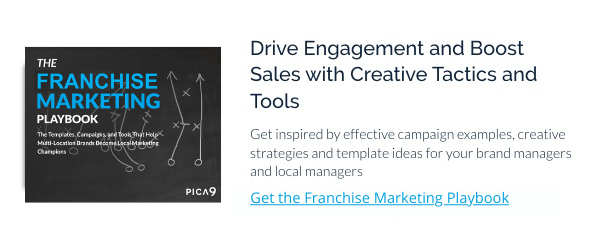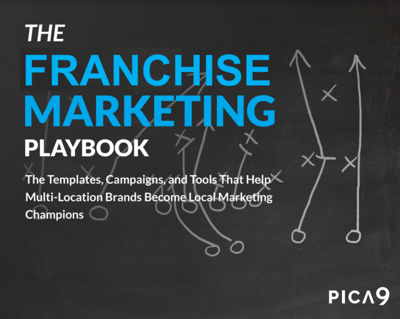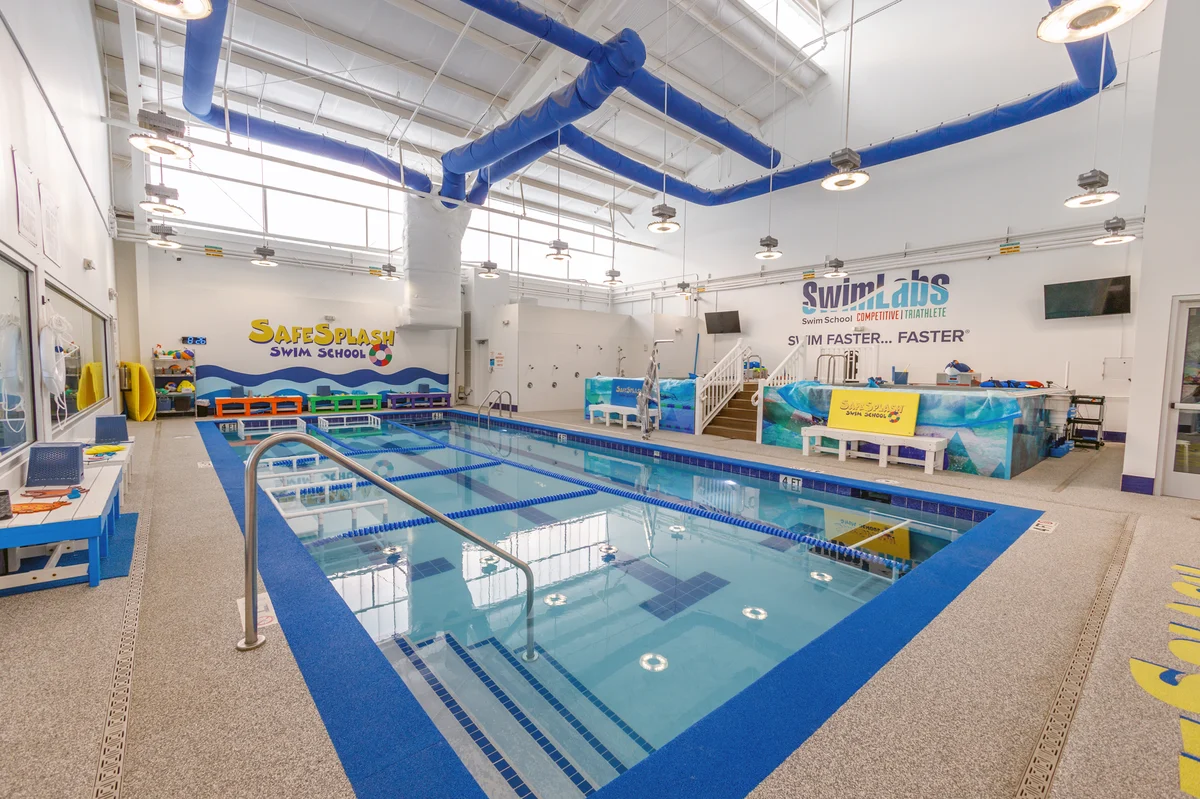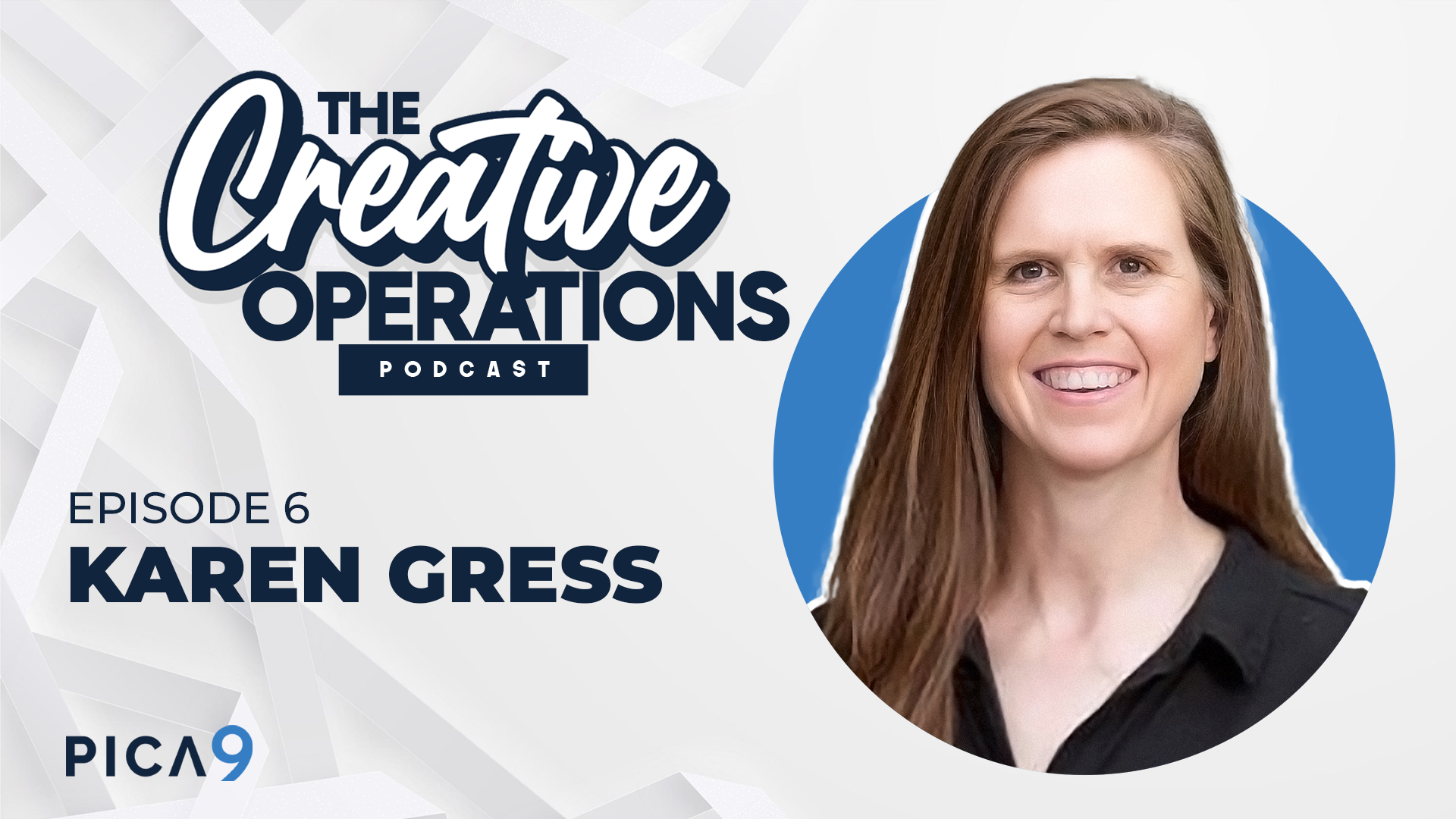Kevin: Hello everybody and welcome to this episode of The Creative Operations Podcast. I'm your host, Kevin Groome, and today we're going to be taking another journey into the world of franchise marketing, where we so often find local marketers who need to get both crafty and creative in order to get the job done.
I'm really pleased to have with us as a guest today: DeBow Padgett. She's the director of marketing for a really interesting, and crafty-creative franchise org named Color Me Mine. So DeBow, welcome to the podcast and thanks for being here with us.
DeBow: Hi, Kevin. Thank you so much for having me.
Kevin: Now our listeners always love to hear a little bit about your journey into the world of creative operations. So tell us a little bit about where you've come from and also about the creative operations environment for Color Me Mine.
DeBow: Sure. So I actually have a background in art and design. It's what I studied in college. I actually was a professional artist for about a decade and within that timeframe, social media came to fruition, so I had to learn how to market and with that, I kind of fell in love with the graphic design and strategy, a proportion of social media marketing when it comes to being a creative. I began just learning more about it. I began taking on other artists, and clients, doing their marketing, and then I grew a huge customer base and eventually moved into the corporate world and took over for Painting With a Twist marketing and now here I am with Color Me Mine. So it's been about 10 years in social media marketing, starting around 2010, but before that it was more of a self-serving experience, but, you know, it's all very organic. So it's been really a fun journey.
Kevin: That's awesome. Tell us about the Color Me Mine franchise itself. It's a really fascinating concept.
DeBow: We are the leader in "paint-your-own pottery" franchising. We have 130 locations internationally and we're a part of a larger arts and crafts for entertainment brand called Twist Brands. Twist Brands is an umbrella brand that houses our sister company, Painting With a Twist, who is the leader in "paint and sip". We have over 250 locations nationally at Painting With a Twist.
Kevin: Those are significant numbers when you think about it from a headquarters perspective. So, you know, one of the things we find is this notion of the franchisee who has to do more and more; and often with less and less time and with more and more marketing options.
So, my first question for you about your creative operations. Have you guys seen your franchisees and your brand itself really making more and more of a shift to digital from traditional methods and more into digital and social media as you've described? And has that created any kinds of challenges or pressures or difficulties for the franchisee?
DeBow: 100%! You know, of course, marketing has changed tremendously into digital with social media kind of coming into being the front runner of everything marketing, but every year is different as well. We saw the introduction of Tik-Tok with the pandemic and how it exploded with rapid growth, kind of leaving Facebook in the dust in terms of it's downloads quarter over quarter. But our franchisees too, we are such a visual business model; having all the arts and crafts and digital media, has played a huge part in that success. Especially Facebook events, online booking software, and being able to integrate those things on an advertising level and then down to organic social media, interacting with our guests, and just showing off the experience because we actually sell two products. We sell the product that you come in and make, whether it's a piece of pottery or a birthday party. And then we sell the experience, which is the sort of bonding that you do, not only with your family and friends, but with yourself as you're creating and kind of building confidence in that creative energy, that you experienced at a studio.
Kevin: Tell me, as you look at your franchisees who wear many different hats in the course of a day, how are you guys going about helping them to level up their skills so that this rapidly evolving world of digital marketing isn't quite so unfamiliar? How do you guys support and empathize with the franchisees as they make that journey.
DeBow: We try to take the burden as much as possible. Luckily, our franchisees, while they come from all walks of life, all have one thing in common and that's that they love creativity. You kind of have to. Right? In order to own paint rooms or a pottery studio; but we try and get the burden off them in every aspect of marketing.
So that may include with email marketing, creating email strategies, providing all of the predesigned templates for those strategies, whether they are for a specific event, or a season. Holiday seasons are a great example where we have tons of different offerings. So kind of making that a drag and drop experience in terms of their own studio's localized messaging and then that same thing applies to design and social media. We have several different vendors we work with in order to create a social media content library for a quarter, you know, it's 50 to 60 posts, so they can go in and they can schedule exactly what makes sense for their studio.
And the same with design. Trying to create as much as possible for them and then allowing space for localized messaging on templates so that they still have their brand integrity. They still have that brand consistency, but they get to make sure that they're speaking directly to their community online.
Kevin: That's great. It sounds like that's a lot of a load on the headquarters team. Tell me a little bit about how you guys manage all that sort of template building and education, because you've got two things going on at the same time. Do you do it sort of seasonally, or is it sort of more continuous?
DeBow: It's continuous. I'm just really passionate about what I do, so I kind of obsess over it and that's really it. You have to love what you do in order to continue to create as much as we're creating and because right now the marketing team is a one man marketing team and that's myself. I'm creating all the templates and we even work on playbooks in terms of how to use the assets and how to use our specific marketing platforms.
And of course, I've got great support with all of our vendors. They're there and the client services teams are just amazing. They help with webinars and education and it's just all about being there and connecting one-on-one with the franchisees, just to make sure that each concern is heard and everyone has their individual sets of skills and their grievances about how they're going to run their business and how their time is impacted on a regular basis.
Kevin: That's fascinating. So, it sounds to me like you keep a really close eye on the adoption of the tools that you are providing to the franchisees and even the creative assets you're providing. It sounds to me like you watch that stuff like a hawk. Yeah?
DeBow: Yes and I take feedback very seriously. I love constructive feedback. They give me feedback if something's not working or if I need to change it.
I always say at corporate training that the most dangerous phrase in marketing is "we've always done it this way", because it will change month to month.
Everything I knew last year is in the garbage and I've relearned everything this year. I mean not everything, but a very large chunk, especially with Tik-Tok and vertical real estate, in terms of mobile and social video becoming this completely regular and more common sort of experience for our guests and social media.
Kevin: I could imagine that is an educational lift with franchisees. Unless of course they're in their twenties and thirties, that's one thing. But when you've got a community that spans a greater range and TikTok has really emerged very quickly, I would think that, both in terms of how you use the tool and how you use the tool and stay on brand are two separate things. Have you had some interesting experiences there with your franchisees?
DeBow: Sure. With TikTok, I'm not worried about staying on brand. Of course, it would be great in an ideal world. However, right now, TikToK is intimidating. And it's intimidating even to me, you know Gen Z is amazing. They are so incredible and they don't fully know it yet. They are movie producers in their pockets. They can think and storyboard out something, in real time, that would take me hours. I don't know how they have learned to do that. It's incredible. They are going to rock the workforce in the coming years, but our franchisees aren't all built like that.
Luckily, we have a really great business model that has some tried and true trends that are here to stay. So process videos of painting, you know, a before-and-after of painting a piece of pottery. All of those things are relevant constantly and so I'm actually working on a TikTok playbook with some of our seasoned franchisees who are really great at that. And I'm just doing video interviews with them, to release to our system about "What do you use? Do you use a ring light? Do you do it after hours? How do you know what you want to paint?" Then, we actually reach out to our Color Me Mine staff, which is Gen Z, mainly for those hyper trends.
I'm obsessed with this because I think that the nature of the trends are fascinating; because they are so rapid and it's just insanely creative. I love sarcastic and dry humor, which is just like the core of TikTok. So we released monthly trends and how they might apply to a TikTok studio. They don't make sense. One of them was Shrek dancing in the sky and that was like, this big thing, and so the suggestion was to film your studio and then have Shrek dancing in the sky behind it and that was a few months ago. I'm kind of collecting a great resource of these incredibly vivid and vibrant, Gen Z staff members across the nation that I'm interviewing about, you know, how they get into character, how they feel about being the face of their studio. It's completely changing the landscape of how we're going to approach social media and it's never going to go back to the way it was. It's only going to continue down this path now and it could be something totally different next year as well.
Kevin: They talk a lot in the advertising world about how customers are going to own the brands rather than the brands owning the brands. When you look for it happening in the real world, it's a little bit harder to apply. And it sounds like that's exactly what you guys are doing, putting the brand in the hands of your franchisees, waiting to see what comes back and then riding the wave with them to really see where you go next. I think that's a courageous choice and I really admire your leadership team for that.
DeBow: Yeah, it is. And our guests are our best resource to our user-generated content, which is just incredible because like I said, they are those movie producers with a camera in their pocket and so our user-generated content has been our top performing Tik Tok content, with millions of views and millions of interactions per video. I see that expanding into potentially influencer marketing and paid user-generated content in the future.
We're just not there yet. We're still exploring the platform and trying to get our franchisees to have a feel for it, while it's still in its infancy. We don't really know where it's going to go yet.
Kevin: It's true. Well, as you explore that world, you made a point that I found really compelling, which was that ease of use with all these different tools and across all these different tools is really going to be critical to how you express and evolve the brand as time goes by, all these interfaces that you're creating for your users and providing to your franchisees. Can you tell me a little bit about how they're evolving in their ease of use and the willingness of folks to dive into them?
DeBow: Yes, of course. The more intuitive the interface, the better. I don't know if it was intentional or not, but it's very reminiscent of the Microsoft suite to myself, in terms of how you can arrange different design elements or animate them. It reminds me of PowerPoint, which is something of course I had got very comfortable with, going to college. It's one of the only technologies that's still around from back then. But it's made for the layman and all of our vendors have sort of gone more towards a simple interface, because we need our franchisees to log on. We need them to understand what buttons to push for what they want to see and what they want to be able to do. And then get out within a few minutes. The goal is efficiency and ease, above all else.
Kevin: We've seen that ourselves; the average session times on the CampaignDrive platform, which is for marketing materials, is usually less than 3 minutes. We're actually starting to see a lot of demand for batch generation, so folks want to come in and create seven things at the same time or eight things or two things, whatever it might be. What's really inspiring about what you're doing is supporting these folks across so many different tools and doing it all, just on your own. So that is a headquarters operation. That's about as condensed as it can get. Do you find yourself getting overwhelmed at all? Or do you find that the tools are actually allowing you to scale enforcement?
DeBow: I think it's the tools. They allow me to scale. Before, when I would work in other more complex design platforms, you would art board out a specific sort of social square or email banner, and then you would have to recreate it piece by piece, like how you mentioned. It's very easy to bulk create multiple different formats, so I can create a campaign. The concepting takes a little bit longer, for just the design, but other than that, once I have the concept, I can create the entire campaign in, under a couple hours, and so therefore, it's very fast and then it can get into their hands. Luckily I have a franchise system that communicates wonderfully and they tell me what they want and we can talk through it, so I already know exactly what I need to do. I don't have to sit there and try and figure out, you know, do they want a summer block party, or do they want this? I've got the ideas straight from the mouths of our franchisees and I can execute them and then provide strategy so that it makes sense, in terms of what they're doing in their local markets.
Kevin: It's awesome. Not just distributing marketing assets, but distributing marketing intelligence, which is really cool.
I want to make sure that we don't take up too much of your time cause you sound busy. Let me thank you for spending some time with us here on the The Creative Operations Podcast, we're going to keep a close eye on you guys and everything that's going on at Color Me Mine and we really appreciate your taking the time.
DeBow: I really appreciate you, Kevin. It was great. And thank you so much for having me.





